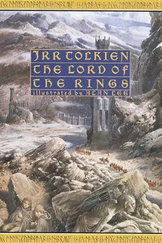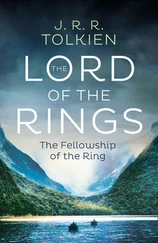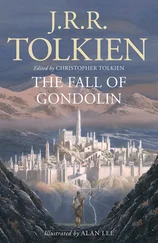J Tolkien - The Silmarillon
Здесь есть возможность читать онлайн «J Tolkien - The Silmarillon» весь текст электронной книги совершенно бесплатно (целиком полную версию без сокращений). В некоторых случаях можно слушать аудио, скачать через торрент в формате fb2 и присутствует краткое содержание. Год выпуска: 1985, ISBN: 1985, Издательство: Del Rey, Жанр: Эпическая фантастика, на английском языке. Описание произведения, (предисловие) а так же отзывы посетителей доступны на портале библиотеки ЛибКат.
- Название:The Silmarillon
- Автор:
- Издательство:Del Rey
- Жанр:
- Год:1985
- ISBN:0345325818
- Рейтинг книги:5 / 5. Голосов: 1
-
Избранное:Добавить в избранное
- Отзывы:
-
Ваша оценка:
- 100
- 1
- 2
- 3
- 4
- 5
The Silmarillon: краткое содержание, описание и аннотация
Предлагаем к чтению аннотацию, описание, краткое содержание или предисловие (зависит от того, что написал сам автор книги «The Silmarillon»). Если вы не нашли необходимую информацию о книге — напишите в комментариях, мы постараемся отыскать её.
Those interested in J.R.R. Tolkien's Middle Earth should not be without this grand volume that tells the tragic tale of the struggle for control of the Silmarils, a struggle that would determine the history of the world long before the War of the Ring.
The Silmarillon — читать онлайн бесплатно полную книгу (весь текст) целиком
Ниже представлен текст книги, разбитый по страницам. Система сохранения места последней прочитанной страницы, позволяет с удобством читать онлайн бесплатно книгу «The Silmarillon», без необходимости каждый раз заново искать на чём Вы остановились. Поставьте закладку, и сможете в любой момент перейти на страницу, на которой закончили чтение.
Интервал:
Закладка:
Then Yavanna was glad, and she stood up, reaching her arms towards the heavens, and she said: 'High shall climb the trees of Kementari, that the Eagles of the King may house therein!'
But Manwe rose also, and it seemed that he stood to such a height that his voice came down to Yavanna as from the paths of the winds.
'Nay,' he said, 'only the trees of Aule will be tall enough. In the mountains the Eagles shall house, and hear the voices of those who call upon us. But in the forests shall walk the Shepherds of the Trees.'
Then Manwe and Yavanna parted for that time, and Yavanna returned to Aule; and he was in his smithy, pouring molten metal into a mould. 'Eru is bountiful,' she said. 'Now let thy children beware! For there shall walk a power in the forests whose wrath they will arouse at their peril.'
'Nonetheless they will have need of wood,' said Aule, and he went on with his smith-work.
Chapter 3
Of the Coming of the Elves and the Captivity of Melkor Through long ages the Valar dwelt in bliss in the light of the Trees beyond. The Mountains of Aman, but all Middleearth lay in a twilight under the stars. While the Lamps had shone, growth began there which now was checked, because all was again dark. But already the oldest living things had arisen: in the seas the great weeds, and on earth the shadow of great trees; and in the valleys of the night-clad hills there were dark creatures old and strong. To those lands and forests the Valar seldom came, save only Yavanna and Orome; and Yavanna would walk there in the shadows, grieving because the growth and promise of the Spring of Arda was stayed. And she set a sleep upon many things that had arisen in the Spring, so that they should not age, but should wait for a time of awakening that yet should be.
But in the north Melkor built his strength, and he slept not, but watched, and laboured; and the evil things that he had perverted walked abroad, and the dark and slumbering woods were haunted by monsters and shapes of dread. And in Utumno he gathered his demons about him, those spirits who first adhered to him in the days of his splendour, and became most like him in his corruption: their hearts were of fire, but they were cloaked in darkness, and terror went before them; they had whips of flame. Balrogs they were named in Middle-earth in later days. And in that dark time Melkor bred many other monsters of divers shapes and kinds that long troubled the world; and his realm spread now ever southward over Middle-earth.
And Melkor made also a fortress and armoury not far from the north-western shores of the sea, to resist any assault that might come from Aman. That stronghold was commanded by Sauron, lieutenant of Melkor; and it was named Angband.
It came to pass that the Valar held council, for they became troubled by the tidings that Yavanna and Orome brought from the Outer Lands; and Yavanna spoke before the Valar, saying: 'Ye mighty of Arda, the Vision of Iluvatar was brief and soon taken away, so that maybe we cannot guess within a narrow count of days the hour appointed. Yet be sure of this: the hour approaches, and within this age our hope shall be revealed, and the Children shall awake. Shall we then leave the lands of their dwelling desolate and full of evil? Shall they walk in darkness while we have light?
Shall they call Melkor lord while Manwe sits upon Taniquetil?'
And Tulkas cried: 'Nay! Let us make war swiftly! Have we not rested from strife overlong, and is not our strength now renewed? Shall one alone contest with us for ever?'
But at the bidding of Manwe Mandos spoke, and he said: 'In this age the Children of Iluvatar shall come indeed, but they come not yet. Moreover it is doom that the Firstborn shall come in the darkness, and shall look first upon the stars. Great light shall be for their waning. To Varda ever shall they call at need.'
Then Varda went forth from the council, and she looked out from the height of Taniquetil, and beheld the darkness of Middle-earth beneath the innumerable stars, faint and far. Then she began a great labour, greatest of all the works of the Valar since their coming into Arda. She took the silver dews from the vats of Telperion, and therewith she made new stars and brighter against the coming of the Firstborn; wherefore she whose name out of the deeps of time and the labours of Ea was Tintalle, the Kindler, was called after by the Elves Elentari, Queen of the Stars. Carnil and Luinil, Nenar and Lumbar, Alcarinque and Elemmire she wrought in that time, and many other of the ancient stars she gathered together and set as signs in the heavens of Arda: Wilwarin, Telumendil, Soronume, and Anarrima; and Menelmacar with his shining belt, that forebodes the Last Battle that shall be at the end of days. And high in the north as a challenge to Melkor she set the crown of seven mighty stars to swing, Valacirca, the Sickle of the Valar and sign of doom.
It is told that even as Varda ended her labours, and they were long, when first Menelmacar strode up the sky and the blue fire of Helluin flickered in the mists above the borders of the world, in that hour the Children of the Earth awoke, the Firstborn of Iluvatar. By the starlit mere of Cuivienen, Water of Awakening, they rose from the sleep of Iluvatar; and while they dwelt yet silent by Cuivienen their eyes beheld first of all things the stars of heaven. Therefore they have ever loved the starlight, and have revered Varda Elentari above all the Valar.
In the changes of the world the shapes of lands and of seas have been broken and remade; rivers have not kept their courses, neither have mountains remained steadfast; and to Cuivienen there is no returning. But it is said among the Elves that it lay far off in the east of Middle-earth, and northward, and it was a bay in the Inland Sea of Helcar; and that sea stood where aforetime the roots of the mountain of Illuin had been before Melkor overthrew it Many waters flowed down thither from heights in the east, and the first sound that was heard by the Elves was the sound of water flowing, and the sound of water falling over stone.
Long they dwelt in their first home by the water under stars, and they walked the Earth in wonder; and they began to make speech and to give names to all things that they perceived. Themselves they named the Quendi, signifying those that speak with voices; for as yet they had met no other living things that spoke or sang.
And on a time it chanced that Orome rode eastward in his hunting, and he turned north by the shores of Helcar and passed under the shadows of the Orocarni, the Mountains of the East. Then on a sudden Nahar set up a great neighing, and stood still. And Orome wondered and sat silent, and it seemed to him that in the quiet of the land under the stars he heard afar off many voices singing.
Thus it was that the Valar found at last, as it were by chance, those whom they had so long awaited. And Orome looking upon the Elves was filled with wonder, as though they were beings sudden and marvellous and unforeseen; for so it shall ever be with the Valar. From without the World, though all things may be forethought in music or foreshown in vision from afar, to those who enter verily into Ea each in its time shall be met at unawares as something new and unforetold.
In the beginning the Elder Children of Iluvatar were stronger and greater than they have since become; but not more fair, for though the beauty of the Quendi in the days of their youth was beyond all other beauty that Iluvatar has caused to be, it has not perished, but lives in the West, and sorrow and wisdom have enriched it. And Orome loved the Quendi, and named them in their own tongue Eldar, the people of the stars; but that name was after borne only by those who followed him upon the westward road.
Yet many of the Quendi were filled with dread at his coming; and this was the doing of Melkor. For by afterknowledge the wise declare that Melkor, ever watchful, was first aware of the awakening of the Quendi, and sent shadows and evil spirits to spy upon them and waylay them. So it came to pass, some years ere the coming of Orome, that if any of the Elves strayed far abroad, alone or few together, they would often vanish, and never return; and the Quendi said that the Hunter had caught them, and they were afraid. And indeed the most ancient songs of the Elves, of which echoes are remembered still in the West, tell of the shadow-shapes that walked in the hills above Cuivienen, or would pass suddenly over the stars; and of the dark Rider upon his wild horse that pursued those that wandered to take them and devour them. Now Melkor greatly hated and feared the riding of Orome, and either he sent indeed his dark servants as riders, or he set lying whispers abroad, for the purpose that the Quendi should shun Orome, if ever they should meet.
Читать дальшеИнтервал:
Закладка:
Похожие книги на «The Silmarillon»
Представляем Вашему вниманию похожие книги на «The Silmarillon» списком для выбора. Мы отобрали схожую по названию и смыслу литературу в надежде предоставить читателям больше вариантов отыскать новые, интересные, ещё непрочитанные произведения.
Обсуждение, отзывы о книге «The Silmarillon» и просто собственные мнения читателей. Оставьте ваши комментарии, напишите, что Вы думаете о произведении, его смысле или главных героях. Укажите что конкретно понравилось, а что нет, и почему Вы так считаете.












